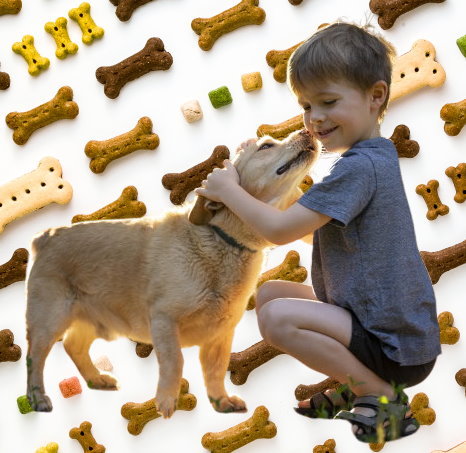Welcome to Dog Training Newbies !
Welcome to Dog Training Newbies !

The bond between humans and dogs is a remarkable one, filled with unconditional love, loyalty, and companionship. For veterans who have served their country and faced the challenges of war, this bond takes on an even deeper significance. Dogs play a vital role in assisting veterans by providing companionship and contributing to their healing journey. In this article, we will explore the profound impact that dogs have on veterans' lives, their roles as therapy and service dogs, and the transformative power of this unique relationship.
COMPANIONSHIP: A SOURCE OF UNCONDITIONAL LOVE
After returning from the battlefield, many veterans face emotional and psychological challenges, including post-traumatic stress disorder (PTSD), anxiety, and depression. The companionship of a dog can be a lifeline in these difficult times. Dogs offer unconditional love, acceptance, and non-judgmental support. They provide a constant presence, offering comfort and emotional stability to veterans who may feel isolated or struggle with reintegration into civilian life. The simple act of petting a dog can release oxytocin, a hormone that promotes feelings of happiness and reduces stress levels. Dogs become trusted companions, offering solace and a sense of purpose to veterans as they navigate their healing journey.
THERAPY DOGS: HEALING THROUGH CONNECTION
Therapy dogs play a crucial role in supporting veterans with mental health challenges. These highly trained dogs visit hospitals, rehabilitation centers, and veteran support groups, providing comfort, emotional support, and a listening ear. The presence of a therapy dog can help reduce anxiety and stress, lower blood pressure, and improve overall emotional well-being. These dogs are adept at sensing emotional distress and responding with empathy, providing a calming influence in times of crisis. Through their gentle and non-intrusive interactions, therapy dogs create a safe space for veterans to share their experiences and begin the healing process.


SERVICE DOGS: ENHANCING INDEPENDENCE AND QUALITY OF LIFE
Service dogs are trained to assist veterans with physical disabilities, mobility limitations, and other specific needs. These remarkable canines are skilled in performing tasks that help veterans regain their independence and improve their quality of life. From opening doors and retrieving items to alerting to sounds or potential dangers, service dogs provide invaluable support and assistance. They are trained to respond to their handler's unique needs, allowing veterans to navigate daily life with greater ease and confidence. The presence of a service dog also serves as a visible reminder of the veteran's service and can help foster a sense of pride and purpose.
EMOTIONAL SUPPORT DOGS: EASING THE BURDEN
Emotional support dogs are specially trained to provide comfort and emotional stability to veterans struggling with mental health issues. These dogs offer a calming presence during times of anxiety or panic attacks, helping to alleviate symptoms and provide a sense of security. Emotional support dogs are often prescribed by mental health professionals as part of a comprehensive treatment plan. Their constant companionship and ability to sense changes in their handler's emotional state make them invaluable allies in the journey towards emotional well-being.
THE TRANSFORMATIVE POWER OF THE HUMAN-DOG BOND
The bond between veterans and their dogs is transformative and goes beyond the provision of physical or emotional support. Dogs become confidants, trusted friends who offer unwavering loyalty and acceptance. They provide a sense of purpose and responsibility, helping veterans establish routines and rebuild their lives. The process of caring for a dog can instill a sense of self-worth and responsibility, boosting confidence and promoting a positive mindset. The unwavering love and dedication of a dog can inspire veterans to overcome challenges, heal from trauma, and rediscover joy in their lives.
Dogs play an extraordinary role in assisting veterans, providing companionship, support, and healing. Whether as therapy dogs, service dogs, or emotional support dogs, these remarkable canines offer a lifeline to veterans facing physical and emotional challenges. The bond between veterans and their dogs is built on trust, love, and an unwavering sense of loyalty. Through their presence, dogs bring comfort, stability, and a renewed sense of purpose to veterans, helping them navigate the path to recovery and rediscover the joys of life. The significant impact that dogs have on the lives of veterans is a testament to the incredible power of the human-dog bond and the profound healing it can bring.